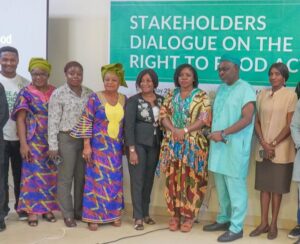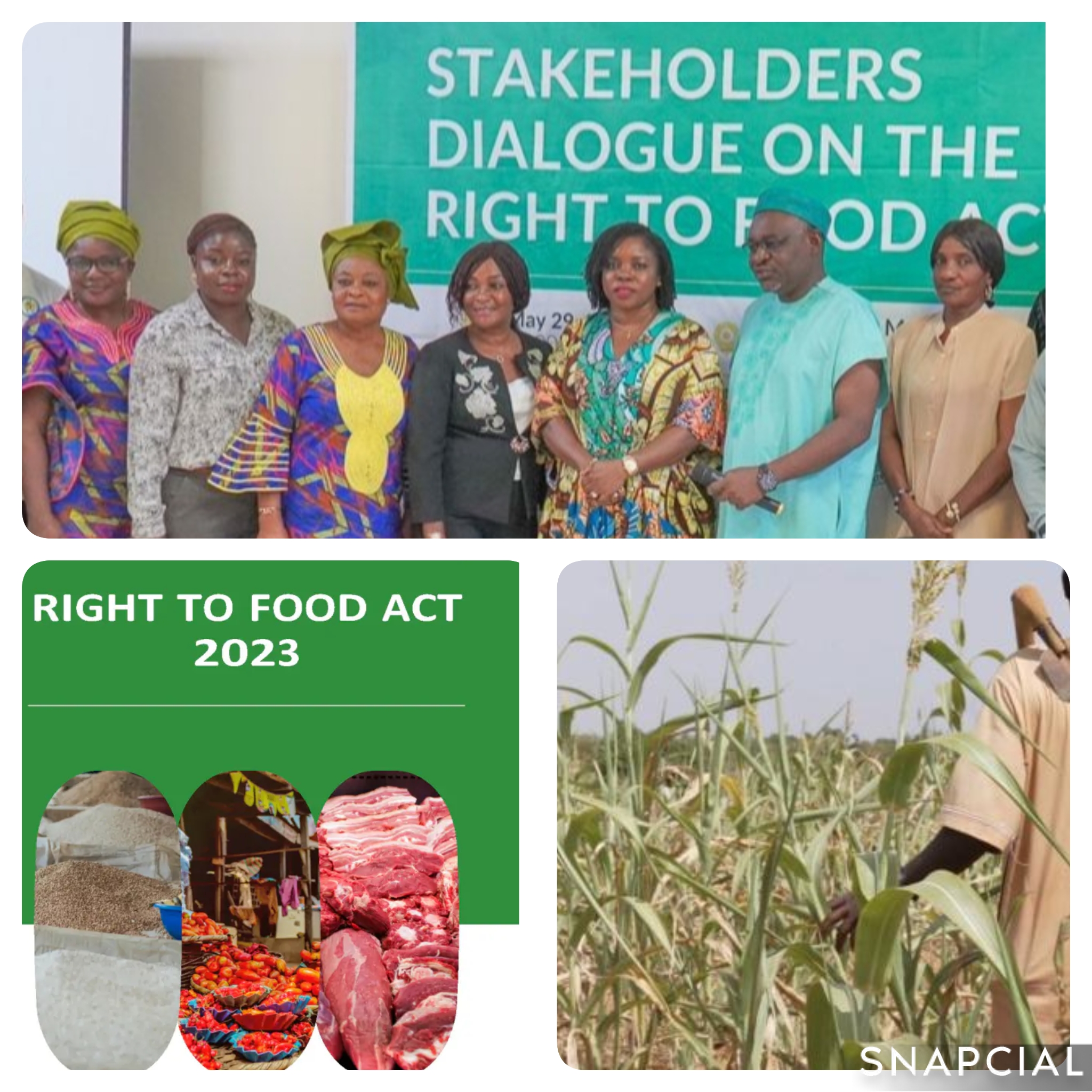By Ezurike Ugochukwu
Adulteration in Nigeria’s food industry has been attributed to poor practices by farmers, traders, and market vendors, according to Oluranti Sagoe-Oviebo, Director of the Fresh Food Hub at the Lagos State Ministry of Agriculture and Food System.
Speaking on behalf of Lagos State Commissioner for Agriculture, Abisola Olusanya, at the Stakeholders Dialogue on the Right to Food Act in Lagos, Sagoe-Oviebo emphasized that while the government continues to support farmers, many of these interventions fail to yield lasting impact.
“Too often, we return to sites of government intervention one or two years later and find little trace of progress,” she said.

Signatories stressed that while government support is crucial, it is not sustainable for farmers to expect ongoing assistance indefinitely. She argued that the role of government is to empower farmers—not to farm directly—so as to ensure consistent food availability across the country.
The event, themed “Together Against Poverty,” was supported by Oxfam in Nigeria under its Together Against Poverty (TAP) project. The initiative leverages Oxfam’s global network to push for international development commitments and more effective donor and national policies that prioritize smallholder-led agricultural transformation.
Addressing stakeholders, Sagoe-Oviebo said food adulteration is a growing concern and urged Nigerians—especially farmers—to take personal responsibility.
“Everyone must play a role in ensuring food availability. Accountability starts with each of us. As a government official, I am accountable for what I’m assigned to do. Farmers must also be accountable for how they use the support provided,” she said.
She added, “A lot of adulteration is going on in the food industry. When you compromise on food quality, should we blame the government for that too?”
Sagoe-Oviebo also challenged Nigerians to shift their mindset, emphasizing the importance of individual responsibility over sole reliance on government.
“Many Nigerians are quick to blame the government, but accountability starts at the individual level. Patriotism and integrity must begin with the citizens. When the average Nigerian does the right thing, the government will be compelled to act responsibly too,” she noted.
She also praised the Ogbenge Women group for effectively managing the support they received, while questioning whether the same could be said of other beneficiaries across Lagos. She encouraged Oxfam to revisit their implementation strategies for better impact.
Also speaking at the event, Michael Terungwa David, Team Lead of the Global Initiative for Food Security and Ecosystem Preservation (GIFSEP), revealed that Lagos has the highest number of food-insecure people in Nigeria. Citing a 2022 report, he noted that over 1.78 million individuals in the state are currently food insecure.
“Despite numerous efforts, challenges such as poverty, high food costs, unemployment, and limited access to nutritious food persist, especially in urban areas,” he said.
David emphasized that Lagos’ role as Nigeria’s economic hub makes food security in the state critical to national stability.
“Food security in Lagos is not just about feeding the population—it’s about public health, social stability, and the sustainability of Nigeria’s entire food system,” he added.
He further highlighted the significance of the Right to Food Act, describing it as a transformative shift in Nigeria’s approach to food security.
“Food security is an outcome, but the right to food is the legal and moral foundation to achieve it. Today’s dialogue marks a key step in ensuring this right becomes a lived reality for every Nigerian.”
David called for urgent multi-stakeholder collaboration to address rising food insecurity, climate change, and economic pressures, while building strong governance structures to implement the Right to Food Act effectively.

 Crime1 year ago
Crime1 year ago
 Business5 years ago
Business5 years ago
 News6 years ago
News6 years ago
 Crime2 years ago
Crime2 years ago
 News2 years ago
News2 years ago
 News6 years ago
News6 years ago



















